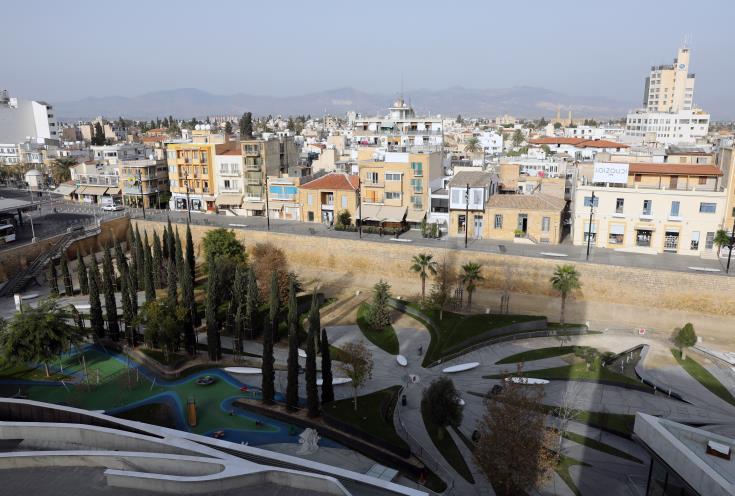15.07.2022
I have been asked this question countless times over the past three months, mostly from foreign investors trying to understand how rising inflation, higher interest rates and the war in Ukraine are affecting local market dynamics.
In a nutshell: things are better than most people expect in terms of demand and prices, but worse in terms of widening income inequality and creating future imbalances (which no one seems to care about).
The real estate market is divided into three main groups that live parallel lives on the “rock”, forever going about their daily business without interacting with each other (as the song says, we are like trains passing each other in the middle of the night).
The first group are the locals living in Nicosia, who mostly work in the government, banks or associated companies, i.e. provide services to the government and banks. These workers have index-linked (inflation) wages, strong trade union protection, work for “inward-oriented companies”, i.e. their clients are locals and risk averse.
The Nicosia real estate market is the least affected by the above external factors, although there has been some decline in investment due to rising interest rates and the construction of large primary residences due to increased construction costs.
The second group are foreigners (not sure if this term is more applicable) who have moved to Cyprus to work in the financial services, shipping and, more recently, in the ICT (information and communication technology) sectors. These people are mostly highly skilled/paid and mostly concentrated in Limassol. Over the past three months, thousands of people have been relocated to Cyprus by their employers, both in connection with tax incentives (headquarters and income tax) and in connection with moving from Ukraine, Russia and Belarus.
The Ministry of Internal Affairs stopped providing relevant statistics after April, but before that, 14,000 Ukrainians moved to the island (the corresponding figures for Russians and Belarusians were not disclosed). It would be logical to assume that the total number of people who have moved to Cyprus from these three countries since February is about 20,000 people (which is equivalent to an increase in the country’s population by 1.75% or ½ of the city of Paphos). To them we must add the Lebanese who have been moving to Cyprus over the past 3-5 years (increased pace after the explosion in Beirut in August 2020) and the Israelis who have stepped up their investment activity in Larnaca (and recently in Paphos).
Rental prices in Limassol are at an all-time high, while prices in Larnaca and Paphos are also on the rise. While this is primarily driven by the recent influx of population, some major infrastructure projects are also going online, such as a new university in the center of Paphos (American University of Beirut), a new road linking Paphos to Polis (under construction), redevelopment of the port and the Larnaca marina (through Kition Ocean Holdings Ltd, an Israeli-Cypriot consortium), the relocation of the Larnaca petrochemical plants (close to completion, master plan announced), etc.
A office space to accommodate these new companies/demand, along with demand for better shopping and entertainment, private schools, etc. We do not expect demand/prices for the above to decrease over the next 2- 3 years, primarily because the proposal is “sticky” and will take some time to react to the new landscape.
The third group is those local residents who live together (or separately) with the above-mentioned foreigners . They receive higher wages either because of their skill set (technical or linguistic) or because they have managed to gain their trust. These people “ride the wave” by becoming experts in drinking quality gin and relaxing in Mykonos. It should be remembered that a surfer only spends 8% of his time on waves, 54% on paddling and 28% waiting for waves. Caution is advised, especially since life is a long-term commitment.
There are two smaller groups that also deserve mention.
British expats living in Paphos and Larnaca who are currently either returning to the UK (to take advantage of the NHS) or have passed on their homes to their children.
There are also thousands of Eastern Europeans (Bulgarians and Romanians) and Sub-Saharan African immigrants who live in outdated buildings in the city centers and are exploited by traffickers and others. This is the “invisible” people of Cyprus.
Medium term expectations
Let me bore you with expectations in the medium term. There are dozens of major projects being built or planned on the island, especially in Limassol, Larnaca and Paphos (in that order). Almost all of them are aimed at wealthy foreigners, especially those who want to move to Cyprus in search of work, as well as for recreation.
These projects are getting bigger and bigger, more and more often they are not developed by local people and are not funded by local banks. In addition, companies moving to Cyprus do not hire as many locals, mainly due to the mismatch between the availability of “local talent” (teachers, accountants and lawyers) and what they require (programmers, engineers, etc.). ).
We are witnessing the development (and split) of two worlds, where inequality will become even more pronounced, and income mobility will decrease. Unfortunately, the Cypriot government is (again) lunatic and focused on building roads and changing the tax regime rather than reforming the education and justice systems.
With the “Cyprus issue” resolved (i.e. nothing is happening), the Russian business leaving (the impact will be “felt” from Q4 onwards as some are still trying to reorganize their operations) and a non-EastMed country. gas pipeline (the latest configuration is Israel, Egypt and Greece), the extent of the dichotomy remains to be seen. We don’t hope, but then again, gin has never been our favorite drink.
Pavlos Loizou, CEO of WiRE FS
















